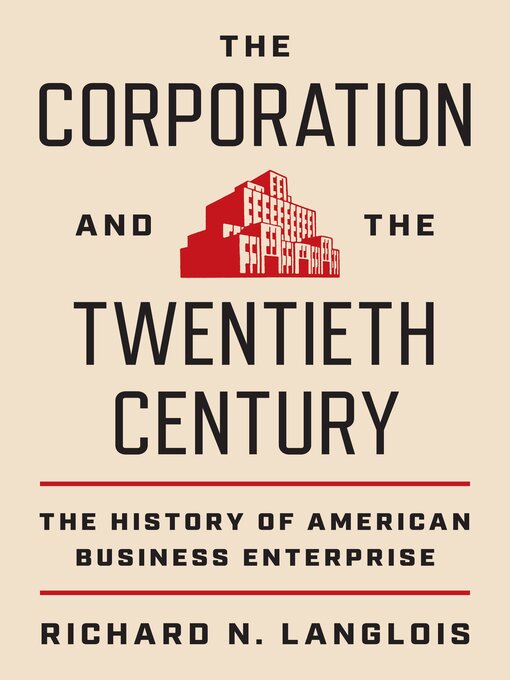A definitive reframing of the economic, institutional, and intellectual history of the managerial era
The twentieth century was the managerial century in the United States. An organizational transformation, from entrepreneurial to managerial capitalism, brought forth what became a dominant narrative: that administrative coordination by trained professional managers is essential to the efficient running of organizations both public and private. And yet if managerialism was the apotheosis of administrative efficiency, why did both its practice and the accompanying narrative lie in ruins by the end of the century? In The Corporation and the Twentieth Century, Richard Langlois offers an alternative version: a comprehensive and nuanced reframing and reassessment of the economic, institutional, and intellectual history of the managerial era.
Langlois argues that managerialism rose to prominence not because of its inherent superiority but because of its contingent value in a young and rapidly developing American economy. The structures of managerialism solidified their dominance only because the century's great catastrophes of war, depression, and war again superseded markets, scrambled relative prices, and weakened market-supporting institutions. By the end of the twentieth century, Langlois writes, these market-supporting institutions had reemerged to shift advantage toward entrepreneurial and market-driven modes of organization.
This magisterial new account of the rise and fall of managerialism holds significant implications for contemporary debates about industrial and antitrust policies and the role of the corporation in the twenty-first century.
- Available now
- New E-book Additions
- New kids and teen additions
- Most popular
- Best of the Library Writers Project
- Black Pacific Northwest Collection
- Manga from VIZ Media
- Ukrainian e-books
- See all ebooks collections
- New Audiobook Additions
- Most popular
- Available now
- New kids and teen additions
- LGBTQ Young Adult Audiobooks
- Family-Friendly Audiobooks 🎧
- Always Available Audiobooks
- Audiobooks Read by Celebrities
- See all audiobooks collections

